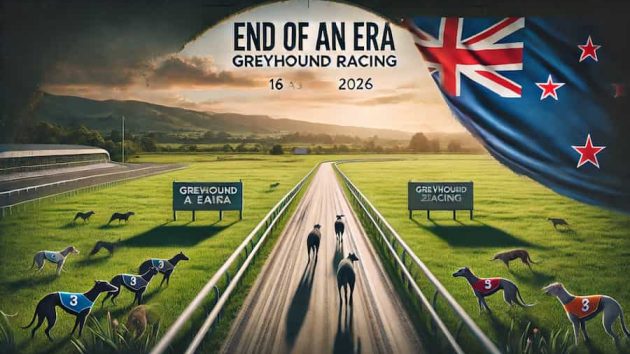New Zealand to Phase Out Greyhound Racing by 2026 Over Animal Welfare Concerns
New Zealand has announced a decisive move to ban greyhound racing by August 2026, citing persistent concerns over animal welfare. The decision follows years of scrutiny into the industry, revealing alarming rates of injuries, fatalities, and instances of neglect among racing greyhounds.

A Gradual Path to Closure
Deputy Prime Minister and Racing Minister Winston Peters emphasized that despite some improvements in the sector, the welfare of the animals remained unacceptably compromised.
The evidence shows that far too many greyhounds are suffering injuries or losing their lives unnecessarily.
Winston Peters
To ensure a smooth transition, the government has set a 20-month timeline to wind down the industry. During this period, approximately 2,900 greyhounds will be rehomed, supported by animal welfare organizations. New regulations will also prohibit the euthanasia of retired racing dogs unless deemed necessary by a veterinarian, aiming to end the practice of culling dogs that no longer generate profits.
Support from Animal Welfare Advocates
Animal welfare groups, including Safe and the SPCA (Society for the Prevention of Cruelty to Animals), have welcomed the decision. They have long criticized the greyhound racing industry for failing to address repeated warnings regarding safety and ethical concerns.
Dr. Arnja Dale, Chief Scientific Officer of SPCA, commended the government’s move:
This is a compassionate decision based on clear evidence. We hope other countries will follow New Zealand’s example and put an end to this exploitative practice.
Dr. Arnja Dale
Industry Backlash
The announcement has drawn sharp criticism from Greyhound Racing New Zealand (GRNZ), the body representing racing clubs nationwide. GRNZ Chair Sean Hannan argued that significant strides had been made to improve welfare standards, including better tracking systems and post-retirement care for dogs.
Hannan voiced concerns about the impact on the approximately 1,000 workers employed in the industry and warned of a cultural void left by the sport’s disappearance. “This decision undermines the efforts we’ve made to reform the sector and ignores the livelihoods of many hardworking people,” he said.
Global Perspective
New Zealand joins a growing list of countries reevaluating or banning greyhound racing due to ethical concerns. While the sport still operates in nations like the United States, United Kingdom, Ireland, and Australia, its popularity has waned. In the U.S., for instance, only two tracks remain operational following widespread closures.
Meanwhile, as the focus on ethical entertainment grows, many New Zealanders are shifting to alternative forms of leisure, including exploring the best online casinos in New Zealand, which offer a safer and more regulated gaming experience.
A New Era for Animal Welfare
As the country prepares for the industry’s closure, the government has pledged to work closely with stakeholders to mitigate the impact on both animals and affected workers. For animal rights advocates, this decision marks a significant victory in the ongoing fight to end greyhound racing worldwide.